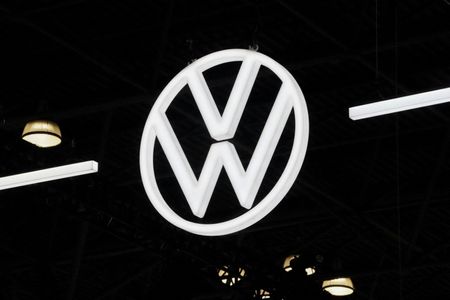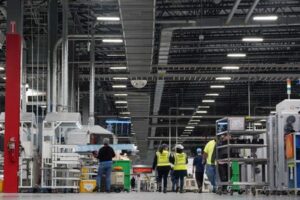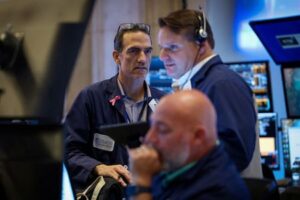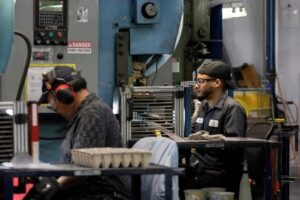(Reuters) – Volkswagen said it plans to end its job security programme — which has been in place since 1994 and prevents job cuts until 2029 — as it faces pressure from Asian competitors.
The IG Metall union says the following German factories could be affected by Volkswagen ending its job security scheme.
All are in the north-western state of Lower Saxony, apart from the Kassel plant which is in Hesse, in central Germany.
BRUNSWICK
Volkswagen’s oldest plant employed about 7,400 workers as of 2022, in a city of about 250,000 people. It produces components such as front and rear axles, steering and battery systems as well as machinery, equipment, tools and moulds. It has also been making batteries for Volkswagen’s new modular electric drive matrix MEB vehicles since 2019.
EMDEN
Founded in 1964 to take advantage of its nearby seaport, the plant initially specialised in producing the VW Beetle, it now makes models such as the VW Passat and the VW electric ID.4.
More than 8,000 employees work at the factory, which produces around 180,000 vehicles a year, compared to a population of around 50,000 in the city of Emden.
HANOVER
The factory employs around 14,000 people in Lower Saxony, a region of 8 million which is also Volkswagen’s second largest shareholder.
It is where production of the VW ‘Bulli’ began in 1956 and now produces the sixth-generation T-Series of the camper van, comprising vans and minivans, as well as the Amarok pickup.
Apart from vehicles, it also makes parts such as cylinder heads and inlet manifolds.
KASSEL
Part of the Volkswagen group since 1958, the Kassel plant is VW’s biggest components plant worldwide and produces more than four million manual and automatic transmissions a year.
The plant is the largest employer in northern Hesse, Volkswagen says, employing around 16,500 people. The total population of Kassel is around 200,000.
The components produced in Kassel are used in the core VW brand, as well as in Volkswagen Commercial Vehicles, SEAT, Audi, ŠKODA, Porsche and Lamborghini vehicles.
SALZGITTER
Opened in 1970 for the production of VW’s K70 model, the factory in Salzgitter employed around 7,500 workers as of 2023, in a city of a little over 100,000 people.
It now manufactures engine variants as well as components for electric vehicles, and Volkswagen announced a 2 billion euro ($2.21 billion) investment in 2021 to transform the main engine plant to the main battery cell plant for the group.
WOLFSBURG
The vast plant in Wolfsburg, Lower Saxony is at the heart of the group’s production and is Volkswagen’s headquarters.
VW says the plant, which covers an area around the same size as 910 soccer pitches, employs approximately 70,000 people.
Established in 1938, shortly after the company was founded under the Nazis, it produced nearly half a million vehicles in 2023, including the VW Golf.
($1 = 0.9045 euros)
(Compiled by Paolo Laudani, Chiara Holzhaeuser and Tristan Veyet; Editing by Alexander Smith)





